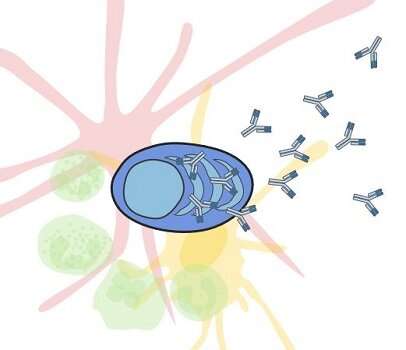Unlocking the key to an effective vaccine

A recent study by Monash University has looked at the role plasma cells and their longevity play in the effectiveness of vaccines in the body and suggests that components within vaccine design are the key.
In the wake of the COVID-19 outbreak, a lot of research is focussed on developing a vaccine. For a vaccine to be successful, it has to do two things. First, it must signal the body to generate a lot of plasma cells making anti-virus antibodies. Second, these plasma cells have to live and produce antibodies for years or even decades for the vaccination to succeed. However, the reality is that most of them only survive a few days.
A recent study published in the journal Immunological Reviews, led by Professor David Tarlinton from Monash Central Clinical School's Immune Memory Laboratory, suggests that components within vaccines can play a major role in aiding the lifespan of individual plasma cells. Understanding the processes involved in long-lived plasma cell formation will open up ways of making vaccines more effective.
"One of the difficulties in designing an effective vaccine is that it is unclear exactly what determines how long a single plasma cell will survive. We only have a limited understanding of what might be special about those plasma cells that survive for the longer periods, and what it is in their development that tells them that they, specifically, should survive," said Professor Tarlinton.
The paper takes a further conceptual step, and outlines there is also likely competition between plasma cells for survival cues, such that there could be a 'survival of the fittest' bent to long-term antibody-based immunity.
Monash University research fellow, Dr. Marcus Robinson in Professor Tarlinton's lab, says the paper outlines a framework that can be used to determine the individual signals that lead to long-lived antibody responses by the plasma cells.
"It is exciting to know we are on the cusp of understanding what is a complicated sequence of events, and that this understanding might feed into vaccine design in the near future," he said.
More information: Marcus J. Robinson et al. How intrinsic and extrinsic regulators of plasma cell survival might intersect for durable humoral immunity, Immunological Reviews (2020). DOI: 10.1111/imr.12895




















